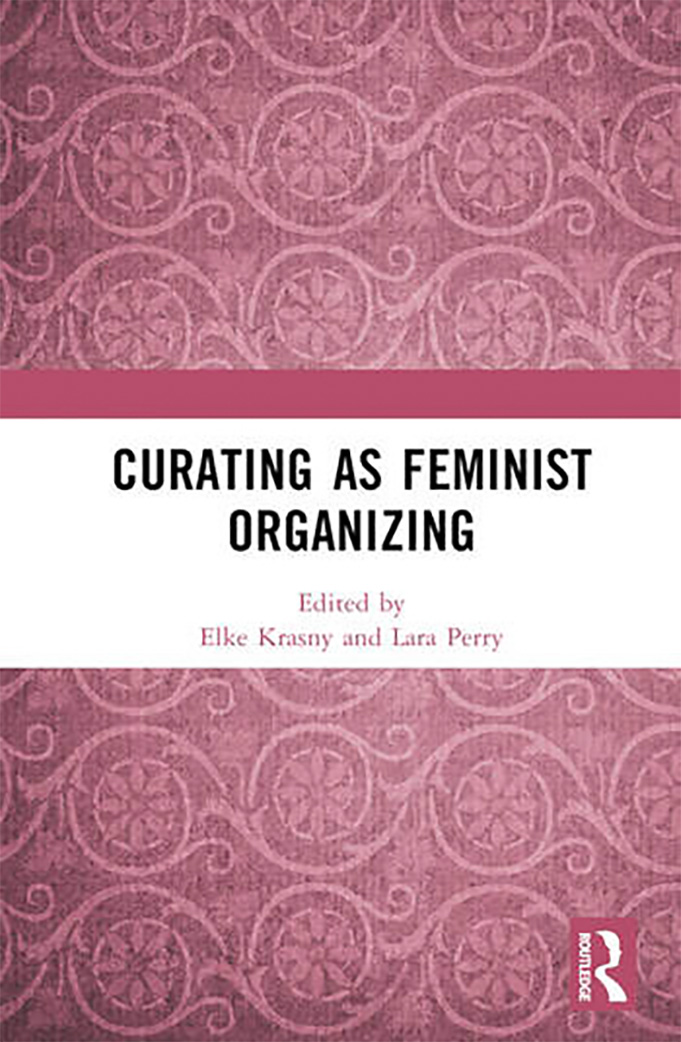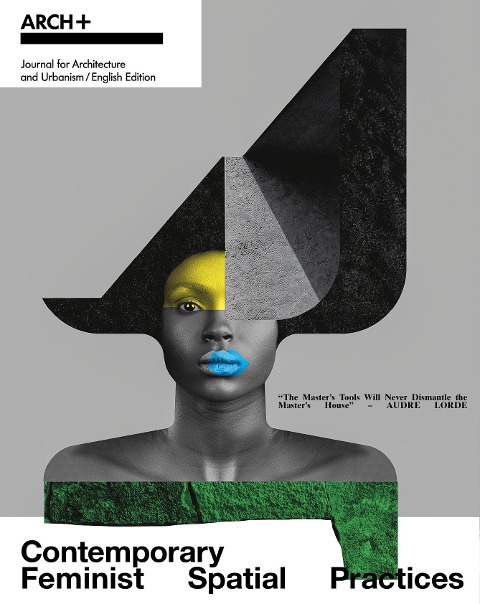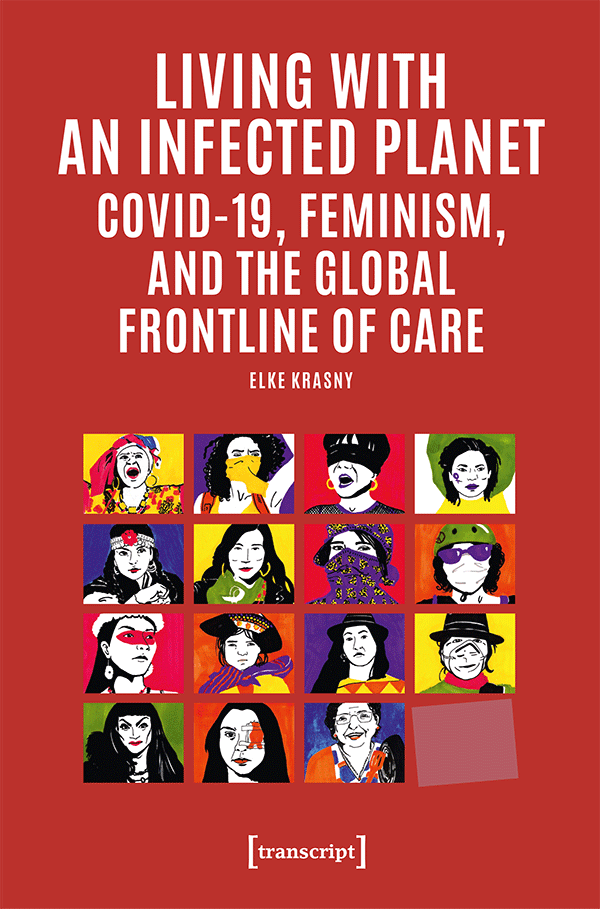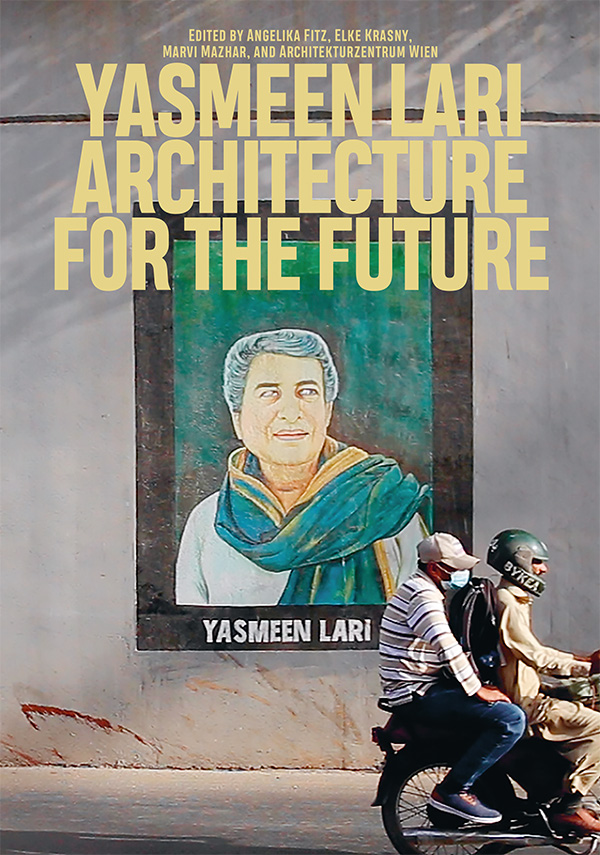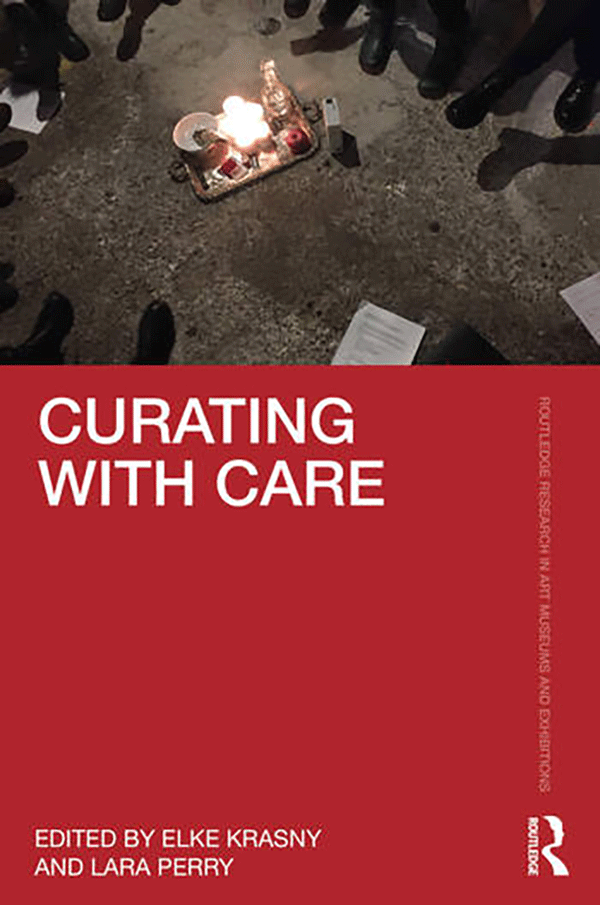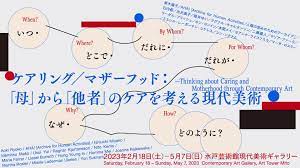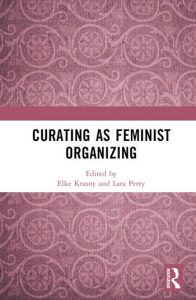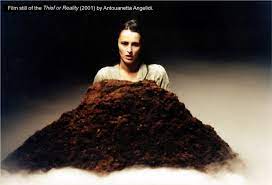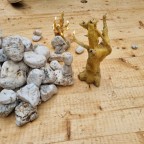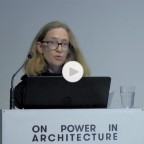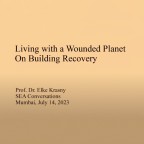Curating as Feminist Organizing
edited by Elke Krasny and Lara Perry
London: Routledge 2023
What makes curating feminist organizing? How do curators relate to contemporary feminist concerns in their local conditions and the globalized artworld? The book brings together twenty curatorial case studies from diverse regions of the globe.
Reflecting their own curatorial projects or analyzing feminist-inspired exhibitions, the authors in this book elaborate feminist curating as that which is inspired to challenge gender politics not only within but also beyond the doors of the museum and gallery. Connecting their wider feminist politics to their curatorial practices, the book provides case studies of curatorial practice that address the legacies of racialized and ethnic violence, including colonialism; which seek to challenges the state’s regulation of citizenship and sexuality; and which realize the drive for economic justice in the organizations and roles in which curators work. The settings in which this work is done range from university art galleries to artist-run spaces and educational or activist programmes.
This collection will be enjoyed by those studying and researching curating, exhibitions, socially and ecologically engaged contemporary art practices, and feminist transnational movements in diverse geographic contexts. The essays are of relevance to practicing curators, critical cultural practitioners, and artists.
–––––
Table of Contents
Introduction: On the Feminist Work of Organizing
Elke Krasny and Lara Perry
Part I: Colonial Wounds and Transformative Healing
1. The Museum and the Anthropocene: Ecological Grief, Planetary Mourning, Healing Feminist Curating
Elke Krasny
2. Resisting Extractivism of Wisdom in the Feminist Curatorial Exercise
Emilia Quiñones-Otal
3. Feminist Curating as Storytelling and Mothering: The Work of D and Kate Harding
Tara McDowell
4. Curating Feminine Alterity: Deconstructing Feminist Strategies by Contemporary Iranian Women Artists
Katy Shahandeh
5. Geographies of Community Care: Cultural Spaces curated by Black Womxn in Copenhagen and Vienna
Teju Adisa-Farrar
6. In the Spirit of Futura: Daily Practices and Challenges of Producing and Maintaining a Feminist Art Space
Katharina Koch
7. Rewriting the Manifesto and Filipina Feminist Publishing
Faye Cura
Part II. State Hegemony and Resistant Communities
8. Human Rights, Memory and Contemporary Artistic Practice in Turkey
Eylem Ertürk
9. Stretching the Institution, Cultivating Interdependency: Feminist Curating as Political Organizing in the Post-Crisis Spanish State
Carlota Mir
10. Radical Geographies of Feminist Curating within the Post-Yugoslav Space
Jelena Petrović
11. Summoning the Witches of the Past: Curatorial Research on Witchcraft in Art & Activism
Katharina Brandl
12. Encounters with Asian Diasporic Identities: The Exhibition Neither Black / Red / Yellow Nor Woman at the Times Art Center Berlin
Julia Hartmann
13. The Vulva Case: Feminist Art, Digital Obscenity, and Censorship in Japan
Hitomi Hasegawa
14. On the Production and Challenging of Sexual Norms through the Art Institution: A Viennese Case Study
Juliane Saupe
15. Searching for Ann(e) : Digital Fan Curation and the Expansion of the Queer Heritage Landscape
Katelyn Williams
16. On Common Spaces, Affinity and the Problem of a Torn Social Fabric
Dana Daymand and Nika Dubrovsky
Part III. Labour Injustice and the Politics of Solidarity
17. Curating as a Collective Process: Feminist, Curatorial, and Educational Perspectives
Dorothee Richter
18. Your Hands in My Shoes: Reorganizing La Galerie, Centre for Contemporary Art in Noisy-le-Sec
Émilie Renard and Vanessa Desclaux
19. Objects of Desire: Curating Sex Worker Art in the 21st Century
Lena Chen
20. Whose Visibility? Labour Divides, Care Politics, and Strategies of Solidarity in the Art Field
Angela Dimitrakaki
Index
–––––
ISBN 9781032065304
310 Pages 22 B/W Illustrations
